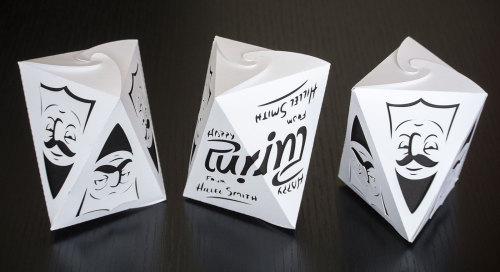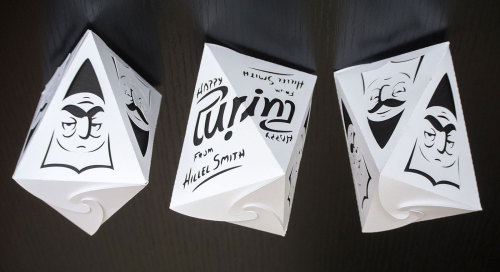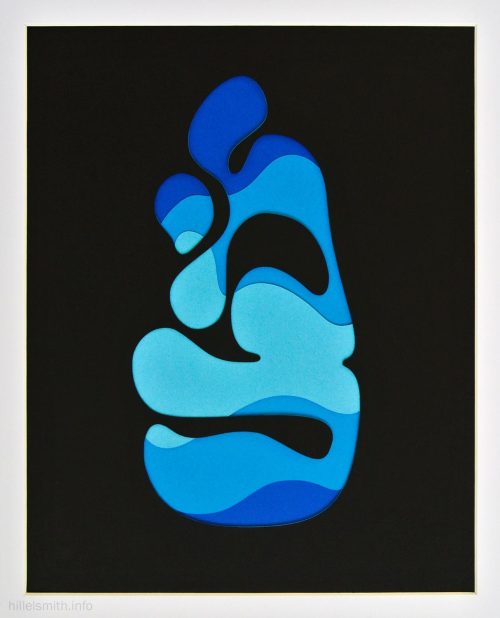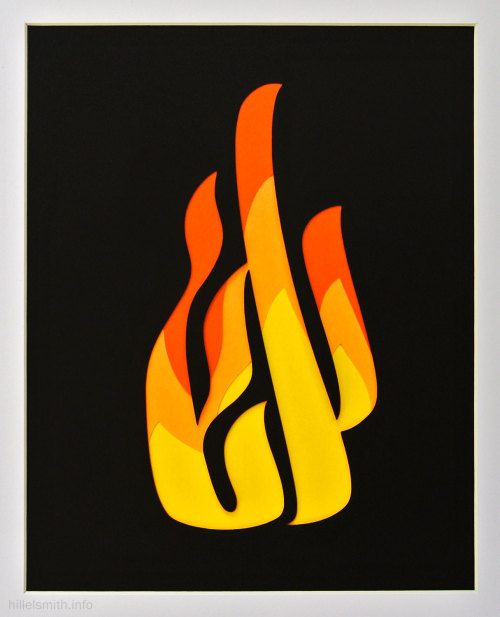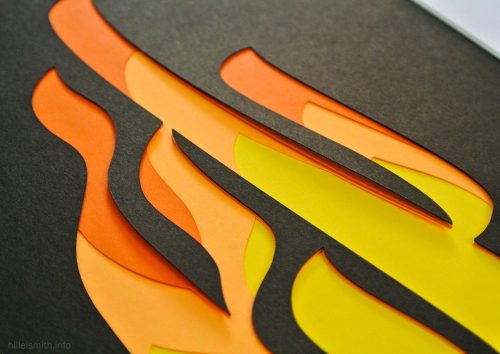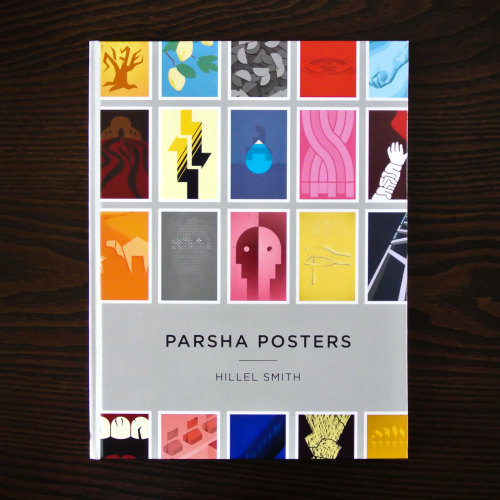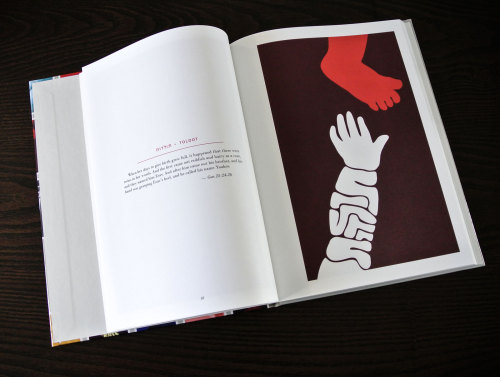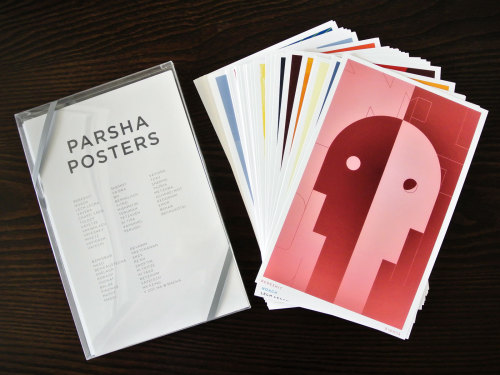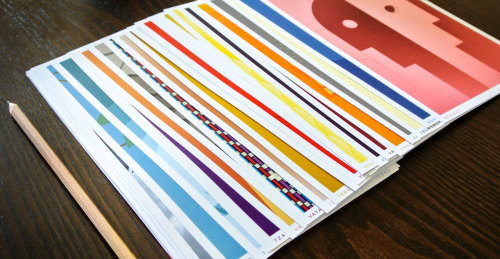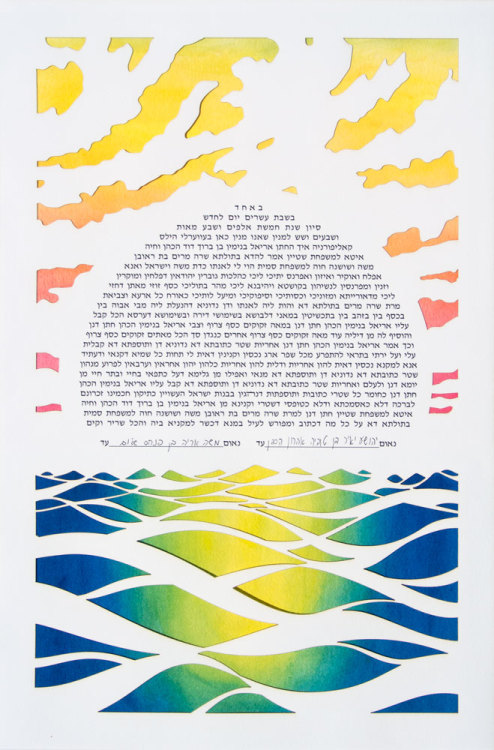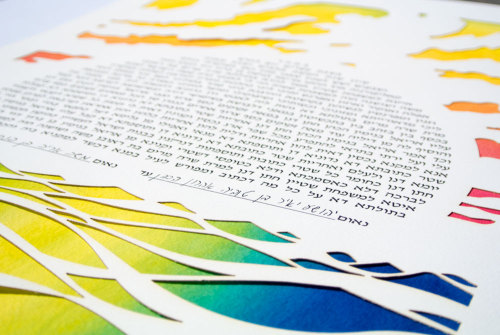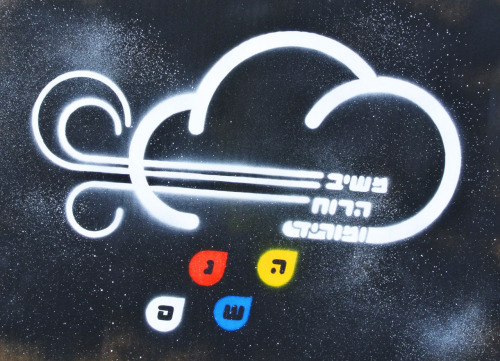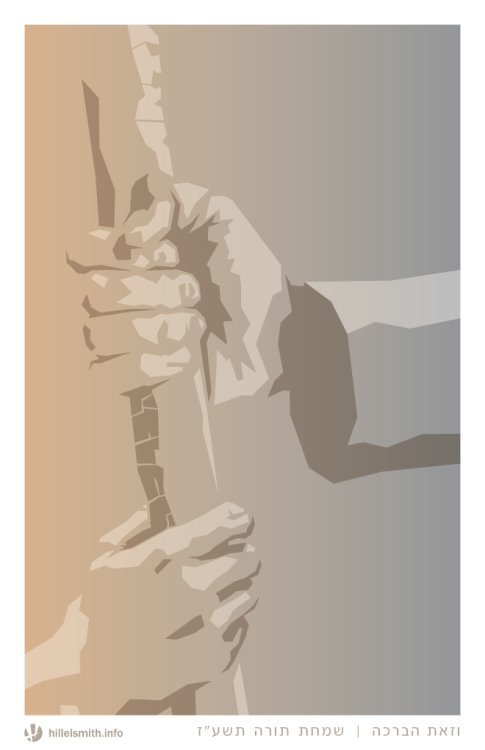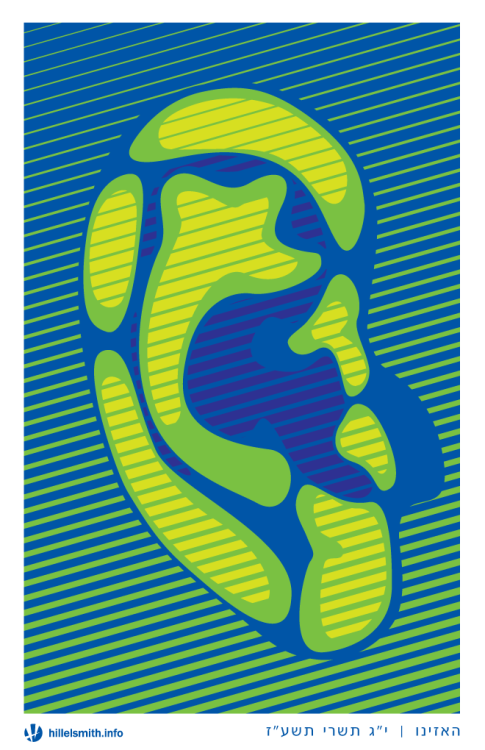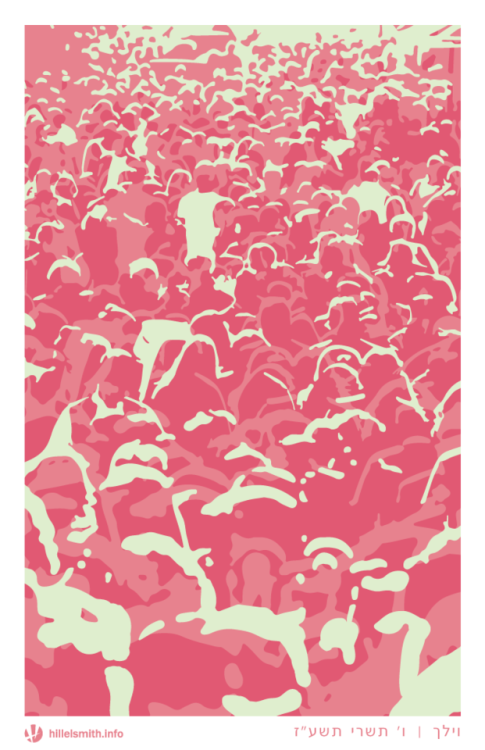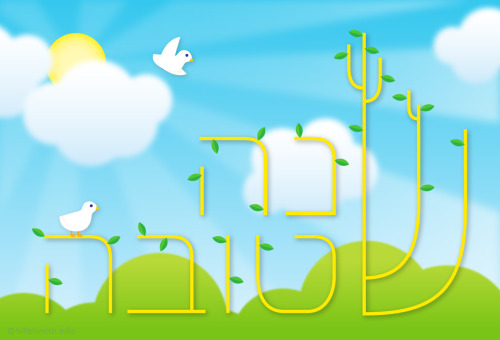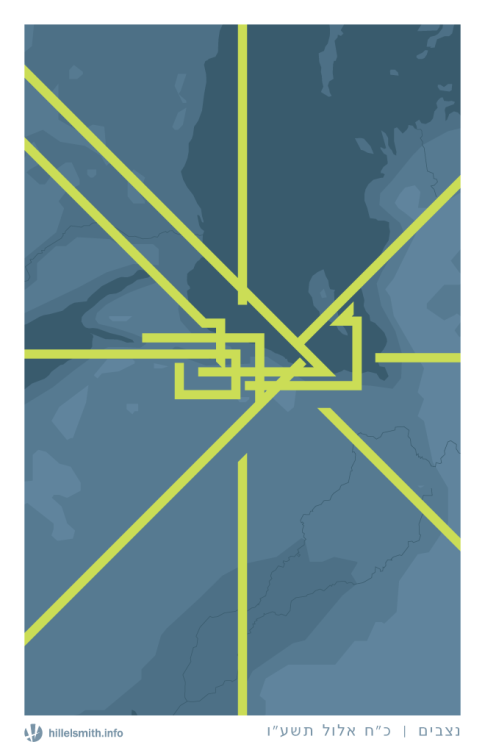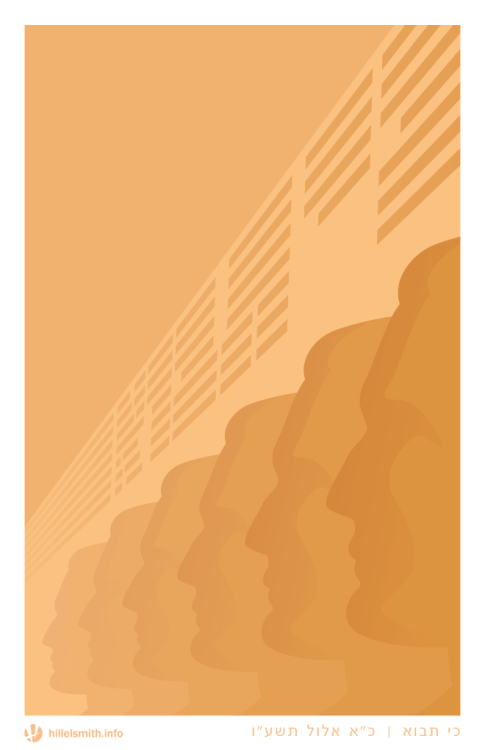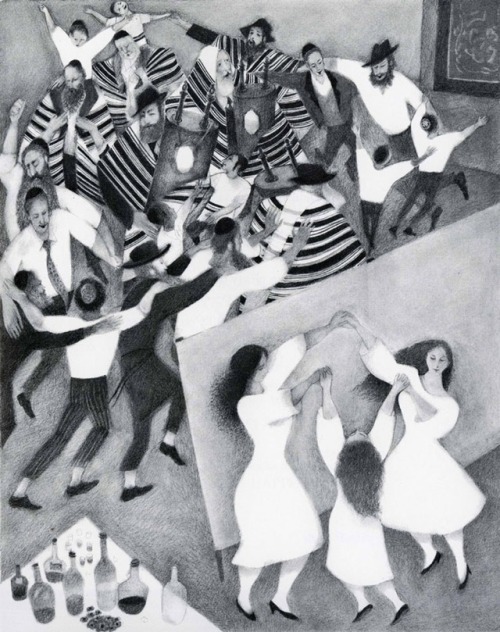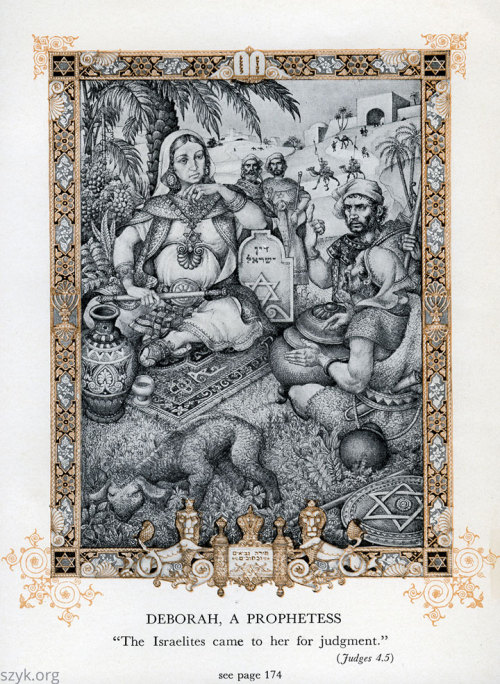#jumblr
Happy Purim! Every year I make increasingly insane papercut mishloach manot packages for this ritual of edible gift giving (find the last few years’ here, here, and here.) I’m especially proud of this year’s edition. These octahedral boxes feature caricatures of Mordechai crowned in royal garb and Haman in his triangular hat, each on a triangular face evocative of hamantashen. A “Happy Purim” message occupies two sides. Look closely and you’ll see that “from Hillel Smith” is repeated upside-down on the second side. Why? Well, check out what happens when we turn the box over. Pretty cool, right? The entire box is identical when flipped! These were inspired by the phrase v'nahafoch hu from the Book of Esther (9:1), describing how the fate of the Jews “was turned around.” We are also instructed to rejoice so indulgently that we can no longer tell the difference between Haman and Mordechai. Play with the box long enough and you’ll be one step closer!
Happy almost Purim!! Reblogging this from last year while I prep this year’s boxes. One year later, I’m still super proud of this. One of the coolest things I’ve made in a while.
Post link
The matching papercut “mayim” (water) piece to the earlier “eish” (fire) papercut. Go see them at the A Cut Above papercut show at USC Hillel, opening January 22!
Post link
A new papercut piece for a papercut show at USC Hillel that opens January 22. This is four layers of colored paper spelling “eish” which means fire in Hebrew. The matching water piece is here.
Post link
New Parsha Posters stuff in time for Chanuka! The Parsha Posters book features all 54 posters along with translations of the biblical verses they illustrate. The Parsha Posters mini-posters set also includes all 54 posters as mini 5.5″x8.5″ prints, great for hanging, classroom activities, and general admiration. Get yours today–and another for a friend! All individual full size posters are available as well here.
Post link
My sister got married over the summer and I designed their ketuba. They wanted a sunset over water and I obliged with this papercut over watercolor.
Post link
It’s that time of year again — Jews worldwide began reciting the prayer for rain on the holiday of Shmini Atzeret earlier this week, and will continue to say it daily until Passover in the spring. I spray painted this Hebrew typographic stencil piece on cardboard a few years back featuring the prayer, which reads: מַשִּׁיב הָרוּחַ וּמוֹרִיד הַגָּשֶׁם (Mashiv ha-ruach u-morid ha-geshem) “May the wind blow and rain fall.”
Post link
Parsha Poster #54 – V’zot HaB’racha: Passing on
And Yehoshua the son of Nun was full of the spirit of wisdom, for Moshe had laid his hands upon him; and the children of Israel listened to him, and did as God commanded Moshe.
— Deu. 34:9
Subscribe to get the parsha in your email weekly.
Chazak Chazak Venitchazek
Moshe’s role was complete. Under God’s guidance, he had led them out of Egypt, delivered the Torah at Sinai, and taught them the ways of God. From Mount Nevo, he gazed out at the promised land, just beyond the river, his eyesight unfailing despite his 120 years. But while his vigor, too, was undiminished, he would go no further. Joshua would take it from here, and after him there would be a new leader, and so on for the ages.
I began this project one year ago, not knowing what it would become, or even if I would finish the year. I have created a body of work that I am very proud of. I have read and studied the Torah in its entirety for the first time in my life, gaining new insight into these ancient stories and a profound connection to the cornerstone of our tradition. And I did not take this journey alone. I discovered a wealth of beauty and knowledge in the creative parshanutanddarshanut—exegesis and expression—of so many incredible poets, leaders, and thinkers. I hope you have found their contributions as inspiring and thought provoking as I have.
And now it’s time for me to pause and reflect and hand over the reins to you. I challenge you to take a few minutes every week to read the parshat hashavua, occupy its characters and consider its implications, and if you’re up for it, create something new that expresses yourinsight. Be strong, be strong, and may we be strengthened by our continuing engagement with our heritage.
Stay tuned for more updates on the future of this project.
Post link
Parsha Poster #53 – Ha’azinu: Torah to the people
“Listen, heaven, and I will speak; the land will hear the words of my mouth. My teaching will drop like rain, my utterance flow like the dew; like a downpour on vegetation, and raindrops on grass…”
— Deu. 32:1-2
Moshe came and spoke tall the words to this song in the ears of the nation, him and Hoshea son of Nun. When Moshe finished speaking all of these words to all of Israel; he said to them, “Pay attention to these words that I warn you with today so that you will instruct your children to be careful to perform all the words of this Torah. Because it is not an empty teaching for you; it is your life, and with this word you will prolong your days on the land to which you cross the Jordan to possess.
— Deu. 32:44-47
Subscribe to get the parsha in your email weekly.
The Witnesses
Listen O heavens
And l will speak
The land will hear
My mouth, its musings
My teachings come down like light rain
Easy for people to hear
My sayings distill like dew on tall grass
Lasting more than a moment
A gentle rain on a tender herb
Some will do better with less
Showers fall on long tall grass
Some will do better with more
Listen O heavens
And l will speak
The land will hear
My mouth, its musings
Look today, not at the past or the future
I, I, am the One; there is no other
I kill and give life, I wound and I heal
There’s no way to escape me
Don’t bother averting your eyes
I am the One you cling to
Take on the world while looking My way
I will judge you, a firm decree
Listen O heavens
And l will speak
The land will hear
My mouth, its musings
Choose to live your lives so boldly
See what life has to offer
You will make mistakes; I will forgive
And we can start the process again
Your children will make themselves new again
They will be standing forever
I’ll make the heavens and the earth new again
They will be standing forever
Listen O heavens
And l will speak
The land will hear
My mouth, its musings
© Shep Rosenman 2016. Listen to the track and read about the sources at 54Mosaics - @54mosaics.
Post link
Parsha Poster #52 – Vayelech: Torah to the people
Moshe commanded them saying, “At the end of seven years, at the time of the shemita year, in the holiday of Sukkot; when all of Israel comes to appear before the Lord your God in the place that He will choose, you shall read this Torah before all of Israel in their ears. Gather together the nation — the men, and the women, and the children, and the stranger in your gates — to hear and to learn and to be in awe of the Lord your God, and to be careful to perform all of the words of this Torah. And their children who do not know, they will hear and learn to be in awe of the Lord your God all the days that you live on the ground that you are crossing the Jordan to possess.”
— Deu. 31:10-13
Subscribe to get the parsha in your email weekly.
We take the role of God
i
The people must gather
every fifty years—
the men, the women, the babies.
They gather to hear the king
read the Teaching,
the words of holiness.
ii
God made the Heavens and the Earth and all that is in them
beginning with the words: Let there be Light
and finishing with the words: Let us make Man.
God announced to the world to exist
and the world hearkened,
came to be.
*
The king—
a lone man—
announces the words of holiness
and all of the people gather to hear him,
to be filled with the words,
to be created as a people,
to be created as a world.
iii
See how it is a lone person’s role
to reenact Creation,
to create a world with the word of God.
A community is the universe he creates.
Abe Mezrich (@thetowerbabel ) is the author of The House at the Center of the World: Poetic Midrash on Sacred Space from Ben Yehuda Press.
Post link
Rosh Hashanah is almost here! Shana tova, and a happy, healthy, and well-designed new year!
Post link
Parsha Poster #51 – Nitzavim: Ingathering crowds
Then God will bring back your captivity and have mercy upon you, and He will gather you in from all the peoples to which God has scattered you. If your dispersed will be at the ends of heaven, from there God will gather you in and from there He will take you. God will bring you to the land that your ancestors possessed and you shall possess it; He will do good to you and make you more numerous than your ancestors.
— Deu. 30:3-5
Subscribe to get the parsha in your email weekly.
The Gifts of Global Jewish Life
Persia, Iraq, Spain, Uganda. Often when we think of centers of Jewish life we focus on the experiences of Jewish life in Central and Eastern Europe. To be sure those communities have much to teach us, their legacies are rich and their cultural impact is felt in every aspect of contemporary Jewish life. The dispersion of Jews to the four corners of the world is the Shtetl and but it is also so much more.
From Persia, we have the only Biblical story set wholly outside the land of Israel, with Esther and Mordechai providing a model for generations of Jews thriving as a minority.
From the community of Babylon, modern Iraq, we have not only weeping for what was lost but also the creation of the extraordinary compilation of Jewish thought that is the Talmud.
From Spain we have exceptional individuals like Maimonides but also Ladino, a Jewish language that would connect communities as they spread through the world.
From modern Uganda, we have Rabbi Gershom Sizomu who brings Jewish values to make change on a large scale as he sits in the national Parliament.
Being scattered to the four corners of the earth is not always easy, but it has its gifts.
In ancient times, dispersion often meant Jewish communities living without connection. Today, transportation and communication allow us to connect like never before. Today, we can gather the gifts of our many experiences and create a Jewish future that learns from the diversity of our scattering. Coming together and celebrating all our differences and contributions we will stand stronger.
Rabbi Ruth Abusch-Magder is the Rabbi-in-Residence for Be’chol Lashon an organization dedicated to celebrating the global diversity of the Jewish people.
Post link
Parsha Poster #50 – Ki Tavo: Telling it on the mountain
On the day that you cross the Jordan to the land that God your Lord is giving you, you must erect large stones and plaster them with plaster… When you cross the Jordan, set up the stones that I instruct you today on Mount Ebal, and plaster them with plaster… On the stones, write all the words of this Torah in a clear script… On that day, Moshe instructed the people saying: When you cross the Jordan, the ones who will stand on Mount Gerizim for the blessing of the people will be Shimon, Levi, Yehudah, Yissachar, Yosef, and Binyamin. The ones who will stand on Mount Ebal for the curse will be Reuven, Gad, Asher, Zevulun, Dan, and Naftali. And the Levi'im will answer and say the following to every person of Israel in a loud voice: “Cursed is the person who…”
— Deu. 27:2-15
Subscribe to get the parsha in your email weekly.
First Blessings, First Curses, First Fruits
moshe, poor thing;
he’s lost it all
but his head and his feet.
all see-through betwixt, a consequence
of revelation, he says.
poor old moshe: glowy face, smelly feet,
shouting for us to choose, from between the two, life.
long ago, the Gerizim-Eival Mountains were just
the Fields of So-So, flush with a myriad wild genera
of blessings and curses: Mixed Blessing, Curse-in-Disguise,
Describe-Me-Not. a rainbow of chameleons, a tangle
of middle places, without names or polarity, like
most of life.
whatever happened to that field?
life’s complications — are felt first, are plucked
first, are taken to others and hardened first
within the kilns of narrative: “from Aram to Egypt
to you, ta-da!” the story’s pressure squeezes out
every relapse, crushes deliberations and detouring details,
and in return: either
(A) a diamond
or
(B) a piece of coal
heaped in piles on opposite ends of that field.
the middle lands were soon picked clean,
the earth loosened, stumbled over itself
sunk into the bedrock
and I fell into its barren chasm
beneath the two new peaks
sharp as knives,
for You are First and Last but
You are nothing In Between.
David Zvi Kalman studies Jewish law and the history of technology at the University of Pennsylvania. He publishes,podcasts,films,sounds, and writes.
Post link
Hello friends, I’m working on a project that will revolve around experiences of antisemitism. I have some questions for both Jewish AND non Jewish folks on here, and if anyone has the time to give a quick (or long, if you prefer) response I would hugely appreciate it!
For my Jewish peeps:
What is your perspective on current antisemitism? Do you feel more or less affected by it than when you were growing up or first converted, or about the same? Do you feel anitisemitism has gotten worse, and do you have personal experiences that reflect that? On or offline? Do you notice it coming from one group of people vs another? Do you feel connected to a global Jewish community? How much anti-Israel rhetoric do you feel is antisemitic? And, in your opinion, where do you see antisemitism heading in the next few years? Feel free to respond to as much or as little as you’d like :)
For my non Jewish peeps:
What is your perspective on current antisemitism? How much would you say you know about it? Do you notice it coming from one group of people vs another? What is your comfort level in talking about Jewish issues/antisemitism vs other forms of social justice? Have you ever noticed antisemitism coming from your own community? Do you think of Jews as being white? Would you consider yourself to be well informed about the Israel/Palestine conflict? No right or wrong answers here, just looking for honest insights if you’re willing to share :)
Thank you in advance to anyone who answers, and again, even if you only want to answer one or two questions that would be super helpful! And please feel free to message me anonymously instead if you’d like!
thinking about the time I saw a post on here that was like “I’ve been looking into Judaism to maybe convert, but all of the texts I’ve read mention Israel wtf? Does anyone have any biblical resources that DON’T normalize Israel??” And I just…. lmao




Some of my fave Jewish Bernie memes of the day lol
Should I post my “Captain America is not a golem, he’s King David” rant here as well? It’s already up on TikTok
three likes? that’s enough for me lmao
For context this comes from a lecture I did a little over a year ago called “Superman on the Nile” (cause, y’know, Superman and Moses) in which I claimed that all superhero media owes its existence to Jewish ideals, and this is only a part of a wider analysis of the Jewish themes and principles present in superhero media in general as a result. Basically, my claim is that the Jewish history of the medium of comics is not incidental but rather inherent to its existence and its values. click here for an overview of the bigger themes I’m referencing, but you don’t at all need to read that in order to understand this.
I call this the David-Cap allegory but like part of it is just debunking the idea that Cap is a golem. To get this out of the way: Captain America is not a golem. A golem is a non-sentient tool. It has no will of its own, it can be destroyed rather easily, if you know what you’re doing, and in general is more of a thing than a person. It is made to protect Jewish people and Jewish people only against a great evil and does not have a purpose beyond that.
That just… doesn’t describe Captain America.
A better description of Captain America is as a leader who initially seems weak and incapable but is revealed, partially through his moral strength, that he is the most capable of any of us. He’s a human being with a heart first and foremost, and a leader second. A tool in someone else’s hands? …not even a little bit.
To explain why I think a better comparison from Jewish history is David, I want to share a quote from Samuel 1 chap 16. This is from when God is telling Samuel to pick the next king, and Samuel resists picking David because of his appearance:
And the Lord said to Samuel, “Look not upon his appearance, or the height of his stature, for I have rejected him, for it is not as man sees, (what is visible) to the eyes, while the Lord sees into the heart.”
I don’t love this translation, but like, it gets the point across. Both David and Steve Rogers are chosen out of a group of physically more impressive men because of the quality of their hearts. David - out of a lineup of his big brothers; Steve - out of the entirety of the Super Soldier program.
Another point of comparison is their role in their stories later on. They prove themselves as military leaders and inspire greatness in others. King David takes over from a failed king and unifies the Israelites; Captain America punches Nazis and leads the Avengers. Either way, similar role in the story.
It’s also important to note that as heroes, they are both super human rather than superhuman. They’re both capable of doing feats that are greater than normal, but not quite literally impossible - in case you were wondering, according to Jewish thought, David is given “superpowers” when he is anointed to be king, which allow him to fight the lion, the bear, and, of course, goliath (this is Maimonides’ Guide to the Perplexed). More importantly however, the reason we might look up to them as heroes or leaders is not limited to physical greatness, but rather moral caliber. Steve is chosen by Dr. Erskine specifically because of his moral caliber, yeah? Same as David getting chosen by God since he can see into his heart? In fact, you can very easily compare and contrast the selection process for being anointed and the anointment itself with the Super Soldier program.
Of course the fact that Dr. Erskine is a Jewish man cannot be ignored. But in this lens, I would compare him not to a Rabbi in Prague, but rather to God seeing into David’s heart, with Colonel Phillips (Tommy Lee Jones in case you don’t remember who I’m talking about lmao) functioning as the skeptical Samuel. Which, idk, feels like a more powerful metaphor.
At the end of the day, I feel like Captain America’s purpose as a symbol and a leader alike gets erased if you view him only as a tool. Especiallysince Steve’s principles will often make him take off the costume or use it against the institutions it was made by in the first place, like when he became Nomad in the ‘70s.
And listen, the golem of Prague was an iconic figure in Jewish history/mythology. But I feel like it’s unsuited to discussion of any character with agency and their own motivations (although, wildcard, I think Vision might be on the table, I still have to think about this more).
One last note: don’t take this as an endorsement of everything David does nor as me claiming there’s a perfect parallel between every David story and Cap, just that Cap functions, within a Jewish mythological and cultural context, as a military leader and hero similar to David.
Ok it’s official part two: why every single Superman-as-christ metaphor sucks ass coming next
I really appreciate the ways in which I’ve grown when it comes to loving and embracing judaism
like when I was a kid, I wasn’t excited about judaism. it wasn’t something I was passionate about or particularly interested in. it’s just something I was, something everyone around me was. I grew up orthodox and judaism was just my way of life. like yeah if you would’ve asked me I probably would’ve said I was proud to be Jewish but I don’t think I fully understood what that meant.
now as an adult, I actually feel so much closer to judaism. I know there are people from the community I grew up in who would look at me in pity now, because I wear pants, because of what I do for a job (theater), because I’m openly queer.
but you know what? I’m happier now. I love being jewish now. I know now that it doesn’t have to be all or nothing, and I can keep a fully kosher kitchen and make shabbat and keep all of the traditionally orthodox things that I always did growing up, but this time do it while being fully myself.
I feel closer to my culture and religion now more than I ever did in my childhood. it’s no longer something I either did because it was forced on me or because it was what everyone else was doing. now I choose it every day.
now, more than ever, I feel like I can honestly say I’m proud to be jewish



